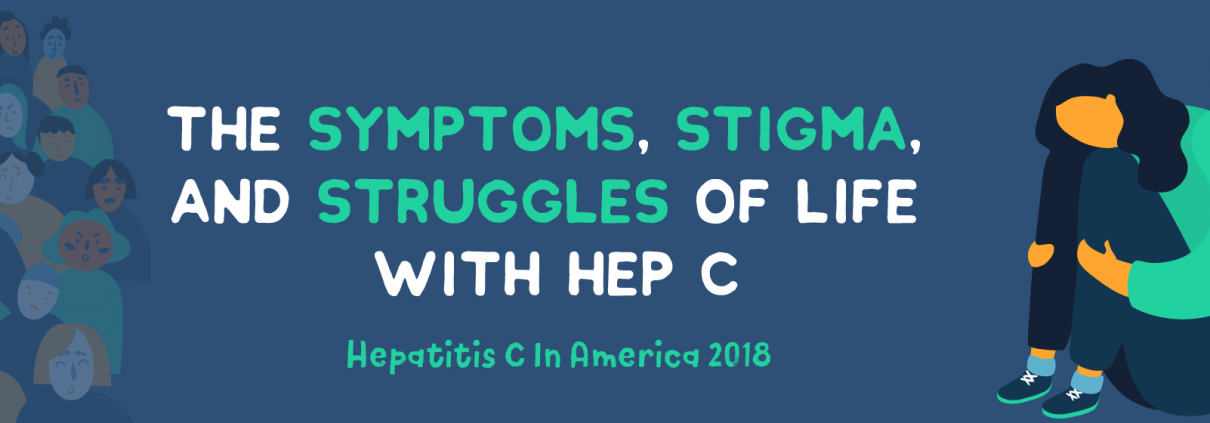Health Union Survey Reveals Thyroid Eye Disease Symptoms Lead to Judgment from Others, Anxiety, Low Self-Esteem
Half of Thyroid Eye Disease In America respondents said they feel judged by others based on how their eyes look
Published August 25th, 2022 | 4 Minute Read
PHILADELPHIA — August 25, 2022 — People living with thyroid eye disease experience judgment from others based on their visible symptoms, anxiety and a negative impact on their self-esteem, confidence and mental health, according to a recent survey conducted by Health Union, the leader in social health. The inaugural Thyroid Eye Disease In America survey illuminates the perspectives and experiences of people living with thyroid eye disease.
These findings also support and fuel content and engagement for the recent launch of ThyroidEyeDisease.net, one of Health Union’s 40 condition-specific online health communities.
Thyroid eye disease is a rare condition – estimated to impact 16 per 100,000 women and 2.9 per 100,000 men, according to academic research – in which the eye muscles, eyelids, tear glands and fat tissues behind the eye become inflamed. The condition typically develops in people with an overactive thyroid and is sometimes referred to as Graves’ eye disease or Graves’ orbitopathy. Thyroid eye disease commonly leads to bulging eyes, redness of the eyes and eyelid swelling, but the condition can also occasionally result in pain, loss of vision and corneal ulcerations.
A significant number of Thyroid Eye Disease In America survey respondents identified themselves as having symptoms that are visible to others. Specifically, 87% have experienced bulging eyes, nearly three-fourths have experienced bags under their eyes, two-thirds have had redness on their lids or eyes, more than six in 10 have experienced inflammation and swelling in their eye tissues and nearly half have had misaligned eyes.
Potentially related, half of respondents said they feel judged by others based on how their eyes look. In fact, nearly a fifth of respondents said people have assumed they are hungover due to their thyroid eye disease symptoms. Multiple respondents noted receiving, as one individual said, “comments and strange looks”; some examples from respondents included:
- “People stood up at family parties and mimicked bulging their eyes out to look like me. Of course, the ‘you look like a deer caught in the headlights’ comments were always not fun too.”
- “People assume that I am intoxicated or sleep deprived. Or that I may even have a mental health condition…Biggest thing is people don’t understand that sometimes I cannot focus and assume I am faking it.”
- “I have to wear glasses to see so that made the bulging even more noticeable. I would look in the mirror and feel a panic attack coming and start to cry.”
These visible symptoms and resulting experiences and perceptions likely contribute to a negative impact on quality of life for people living with thyroid eye disease. Only 14% of survey respondents agreed that they are satisfied with their current quality of life.
Specifically, 54% of respondents said thyroid eye disease brings added anxiety to their daily lives. More than six in 10 respondents said their condition has had a negative impact on their self-esteem or self-image, 53% said it has negatively impacted their overall confidence and 44% cited a negative impact on mental health.
Moreover, 42% of respondents said their condition has negatively affected their social life or relationship with their friends, and three in 10 said their thyroid eye disease has negatively impacted their family relationships. Additionally, 56% say their friends or family don’t understand the realities of living with thyroid eye disease.
Related Articles
Forgetfulness and confusion: Hidden complications of treating T2D
Living with type 2 diabetes can be a lot to handle, involving many medications, drastic lifestyle changes like dietary restrictions and constant monitoring of blood glucose. Health Union’s “Type 2 Diabetes In America 2018” survey revealed that forgetfulness and uncertainty may play a bigger role in a person’s ability to manage their condition than often considered.
The Stigma of Hepatitis C in America Hinders Patients’ Relationship With Their Doctor
Hepatitis C In America 2018, an annual survey conducted by Health Union, collected data from 539 people who are currently living with HCV (n=302) or who have previously lived with HCV (n=237). The results revealed the significant challenges faced when it comes to anxiety and depression, and their relationship with their doctor.
Beneath the Surface of Chronic Conditions: Using Data to See the Big Picture
As Health Union has evolved from launching our first community, Migraine.com in 2010, to 19 online health communities and counting today, one thing has remained the same: bigger has to mean better. Serving the needs of people impacted by chronic health conditions and reaching more than 10,000,000 people each month yields a unique opportunity not only to understand the challenges associated with a specific chronic condition but also to gain a clear understanding of the bigger picture surrounding the full scale of a person’s challenges. In many cases, this includes experience with co-morbid conditions.
“With conditions like thyroid eye disease, there is often so much confusion and misinformation outside of the patient community,” said Olivier Chateau, Health Union’s co-founder and CEO. “As a result, there is a need for resources like ThyroidEyeDisease.net where people impacted by the condition can gather information and connect with others who understand their experiences.”
The inaugural Thyroid Eye Disease In America survey, which was fielded from Jan. 10 to April 6, 2022, included responses from 100 people living with thyroid eye disease. Additional survey results may be available upon request. More information about living with thyroid eye disease can be found on ThyroidEyeDisease.net.
About Health Union
Health Union is the proven industry leader driving and amplifying social health. As the premier social health company, only Health Union encourages the dynamic, real-time action people take to find meaningful connections and share information that impact their health journey. The company reaches millions of people through the largest portfolio of condition-specific online health communities (e.g., Migraine.com, MultipleSclerosis.net, LungCancer.net) and health leaders – addressing virtually every condition and providing the information, connection and support they need.
Related Articles
Forgetfulness and confusion: Hidden complications of treating T2D
Living with type 2 diabetes can be a lot to handle, involving many medications, drastic lifestyle changes like dietary restrictions and constant monitoring of blood glucose. Health Union’s “Type 2 Diabetes In America 2018” survey revealed that forgetfulness and uncertainty may play a bigger role in a person’s ability to manage their condition than often considered.
The Stigma of Hepatitis C in America Hinders Patients’ Relationship With Their Doctor
Hepatitis C In America 2018, an annual survey conducted by Health Union, collected data from 539 people who are currently living with HCV (n=302) or who have previously lived with HCV (n=237). The results revealed the significant challenges faced when it comes to anxiety and depression, and their relationship with their doctor.
Beneath the Surface of Chronic Conditions: Using Data to See the Big Picture
As Health Union has evolved from launching our first community, Migraine.com in 2010, to 19 online health communities and counting today, one thing has remained the same: bigger has to mean better. Serving the needs of people impacted by chronic health conditions and reaching more than 10,000,000 people each month yields a unique opportunity not only to understand the challenges associated with a specific chronic condition but also to gain a clear understanding of the bigger picture surrounding the full scale of a person’s challenges. In many cases, this includes experience with co-morbid conditions.




